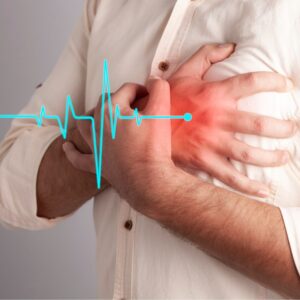To avoid or not to avoid packaged foods…
Aging well, as we know, relies in large part on a healthful diet. Packaged foods – that is, food that must be removed from a box or torn from a package – offer little in the way of nutrition. Instead, they offer added sugars, salt, fat, and calories, and often a craving for more.
The exception to this is the “one ingredient rule.” That is, if a packaged food contains only one ingredient (like chicken, for example), it’s likely a good choice. Food in this category includes eggs, milk, nuts, and olive oil, among others.
Onto the fresh food
With packaged foods off the table, you will eat more fruits and vegetables, lean meats and fish, and whole grains. This is similar to a Mediterranean diet, but other eating plans are also based on real, whole foods – sans packages.
The bad news – reasons to avoid packaged foods
 Weight gain
Weight gain
Weight gain and obesity are often the results of regularly consuming packaged and processed foods. These foods are often calorie-dense and nutrient-poor. That is, they may provide a lot of energy, but they don’t do much in the nutrition department. Add to that their ability to make you feel less full and hungrier than you truly are, which can lead to overeating and unwanted weight gain.
Diabetes and heart disease
Because packaged, processed foods are often high in sugar and refined carbohydrates, they can cause your blood sugar levels to spike, increasing your risk of developing type 2 diabetes. What’s more, they are also high in saturated fat and trans-fat, adding higher cholesterol levels, and an increased risk of heart disease, and stroke to the list of outcomes.
Blood pressure & kidney disease
Sodium strikes again! The high salt content that is often in packaged, processed foods can increase your blood pressure and strain your kidneys. It’s important to note that high blood pressure can not only damage your blood vessels and organs, but can also increase your risk of heart attack, stroke, and kidney failure.

Cancer
Between colors, flavors, preservatives, and sweeteners, packaged and processed foods can be overloaded with harmful chemicals. Some of those chemicals may be carcinogenic. In other words, they can cause cancer or disrupt your hormones, immune system, or your metabolism.
On the much brighter side
• By providing more fiber, antioxidants, vitamins, minerals, and healthy fats, whole foods can lower your risk of chronic diseases. That includes heart disease, cancer, diabetes, and metabolic syndrome.
• With a (typically) lower glycemic index and load than packaged foods, consuming more whole foods can help to balance your blood sugar levels.
• Maintain a healthy weight with whole foods, which tend to be more filling and satisfying than packaged foods.
• Improved gut health is often an outcome of eating more whole foods because they contain prebiotics and probiotics that feed the beneficial bacteria in your digestive system. This can boost your immunity, mood, and metabolism.
• Enhance your cognitive function with the essential nutrients for your brain, like omega-3 fatty acids, B vitamins, and iron. This may help to improve memory, ability to concentrate, and mood.
You can do this!

Part of the art of aging is making changes when doing so will benefit your health. To make the transition from packaged, processed foods to healthful, whole foods, try these tips:
• Choose fresh or frozen fruits and vegetables over canned or dried ones for more nutrients and less added sugar or salt.
• Trade your refined grains like white bread, rice, and pasta for whole grains like oats, quinoa, and brown rice for more fiber and vitamins. Bonus: these can help you feel fuller longer!

• Go for lean meats like chicken, turkey, and fish for less saturated fat and sodium and more protein and omega-3 fatty acids.
• Snack on nuts, seeds, fruits, and vegetables for more healthy fats, antioxidants, and phytochemicals and less added sugar and artificial ingredients. (Way better than those packaged snacks like chips, cookies, and candies.)
• Home-cooked meals using fresh herbs, spices, and citrus to flavor your food are so much better than those using poor oil choices, sugar- and sodium-drenched sauces, dressings, and marinades.
Read more about the importance of eating whole foods from the USDA’s Nutrition page.
Come back to The Art of Aging Well next week when we’ll shine some light on the topic of supplements related to longevity.
Learn how PPMA can help you achieve better health!


 Weight gain
Weight gain